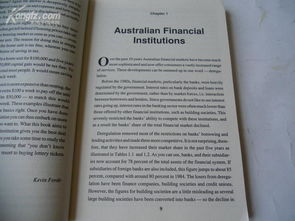Understanding Pre-Foreclosures

Before diving into the strategies to make money with pre-foreclosures, it’s crucial to understand what they are. A pre-foreclosure is a situation where a homeowner is in default on their mortgage but has not yet been foreclosed upon by the lender. This period can last from a few months to a year, depending on the lender and the state’s laws.
Identifying Potential Pre-Foreclosure Properties

One of the first steps in making money with pre-foreclosures is identifying potential properties. This can be done through various methods:
-
Real Estate Websites: Websites like Zillow, Trulia, and Redfin often list pre-foreclosure properties. These sites provide detailed information about the property, including the owner’s contact information.
-
Public Records: Public records can be a goldmine for finding pre-foreclosure properties. You can search for properties that have been marked as delinquent or in default on their mortgage.
-
Real Estate Agents: Real estate agents have access to a database of pre-foreclosure properties and can help you find potential deals.
Strategies to Make Money with Pre-Foreclosures

Once you’ve identified potential pre-foreclosure properties, there are several strategies you can use to make money:
1. Buying and Selling Pre-Foreclosure Properties
This is the most common strategy. You can buy a pre-foreclosure property at a discounted price, fix it up, and then sell it for a profit. Here’s how you can do it:
-
Make an Offer: Make an offer on the property, typically below the market value. The seller may accept the offer, or they may counteroffer.
-
Inspection: Have the property inspected to ensure there are no hidden issues that could affect the sale price.
-
Renovations: If necessary, make repairs or upgrades to the property to increase its value.
-
Sell the Property: List the property for sale and find a buyer. You can sell it for a profit, covering your costs and making a profit.
2. Rent-to-Own Agreements
This strategy involves entering into a rent-to-own agreement with the homeowner. You’ll pay rent on the property, and at the end of the lease term, you have the option to purchase the property at a predetermined price. Here’s how it works:
-
Find a Property: Find a pre-foreclosure property that meets your criteria.
-
Negotiate the Rent-to-Own Agreement: Negotiate the terms of the agreement with the homeowner, including the rent amount, the purchase price, and the length of the lease term.
-
Renovations: If necessary, make repairs or upgrades to the property.
-
Collect Rent: Collect rent from the tenant and use it to pay off the mortgage.
-
Purchase the Property: At the end of the lease term, purchase the property from the homeowner.
3. Short Sales
A short sale is when the homeowner sells the property for less than the amount owed on the mortgage. This can be a lucrative opportunity for investors. Here’s how to get involved:
-
Find a Property: Find a pre-foreclosure property that is eligible for a short sale.
-
Make an Offer: Make an offer on the property, typically below the market value.
-
Obtain Approval: Obtain approval from the lender for the short sale.
-
Close the Sale: Close the sale and make a profit, provided the costs are covered.
Legal Considerations
When dealing with pre-foreclosures, it’s essential to understand the legal implications. Here are some key points to consider:
-
Due Diligence: Conduct thorough due diligence to ensure the property is free of liens and other legal issues.
-
Real Estate Agents: Work with a real estate agent who has experience with pre-foreclosures.




